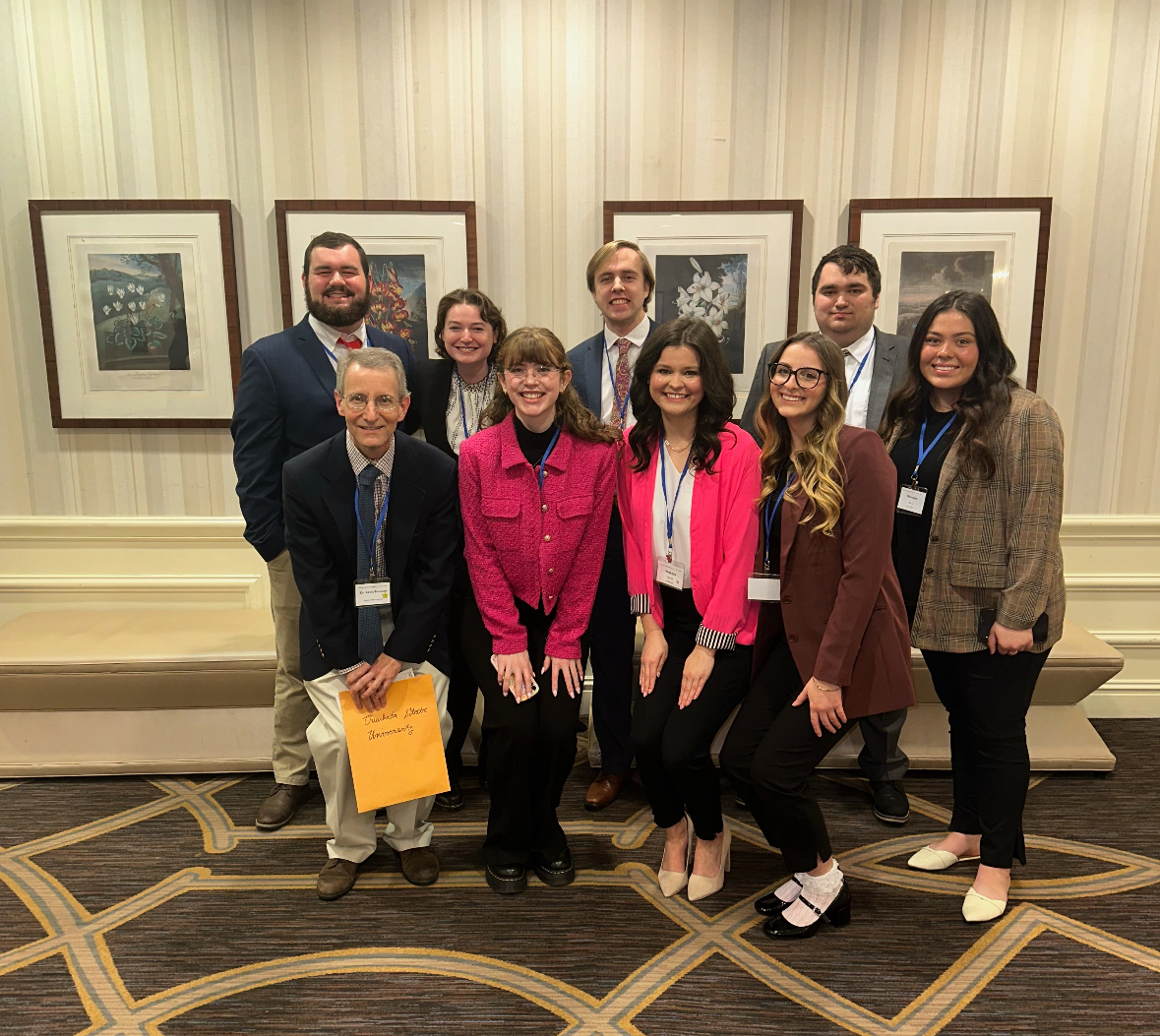There is an almost unheard of book club on campus called the Gutenberg Conspiracy. It consists primarily of Ouachita faculty and staff, although it is really for “somebody on the OBU campus who likes some book,” according to Dr. Johnny Wink, professor of English.
The way it operates is that people send in suggestions to assistant professor of history Dr. Chris Mortenson, who will then, usually before summer break each year, send out a list of the chosen books. Members are then free to read the books ahead of time, read them as they are ready to be discussed or just attend the monthly Wednesday meetings as a means of a book review. Someone might attend and decide that if “Dr. So-and-so liked it, that’s good enough for me,” Mortenson said.
The Gutenberg Conspiracy was created in 1973 by Professor Jane “Missy” Archer.
“Dr. Joe Jeffers, [Missy Archer] and I [were each] readers for personal pleasure, and our conversation often turned to what we were currently reading, particularly when it was a piece of new or recent fiction,” said Dr. Ray Granade, director of library services and professor of history.
“Ms. Archer at one point suggested that we start a faculty reading club for those interested. Missy came up with the name. Johannes Gutenberg gets credit for originating a revolutionary printing press using movable type.
“Because its appearance coincided with more available (and better) paper and renewed interest in education, it sparked a revolution in reading by providing more volume of printed matter and more variety.
“So ‘Gutenberg’ originated as part of the name in the same way that the inventors of Apple computers chose the traditional name of the fruit of the Tree of Knowledge and the allusion to The Fall – an apple with a bite out of it – as their logo.
“Any educated person would know that the Gutenberg Conspiracy would deal with books,” Granade said. “As to the second part of the name, this was not an activity in which the whole faculty participated, [though] all were invited. So in number we met the traditional definition of a conspiracy.
“But more significantly, reading is, and has always been, a subversive activity. It leads to thinking, and beyond that to independent thinking. Education by definition is a do-it-yourself project; one may be directed by a teacher, but the individual learns. And since the process forms one into something new by changing the mind, it’s revolutionary. Conspiracies are generally bent on change, so again it seemed appropriate. So the Conspiracy we became.”
When Archer left after that year, the group temporarily ended. It was started back up in the 1980s by Dr. Randall Wight, professor of psychology and biology, now the Dean of the School of Social Sciences. Since then, the leadership of the group has been passed on to numerous successors, with Mortenson leading now.
“My favorite part of being in the Gutenberg Conspiracy is finding out about all the theses great books I never would’ve read or found the time to read,” Mortenson said.
As for the purpose of the Conspiracy, Wink said it is “just to socialize.”
“It is one of the things that has been good about Ouachita,” he said. “It gives different departments and schools the opportunity to get together and discuss topics that interest them. Some schools have no adhesion. The get-togethers make it possible to get to know lots of people. I regret not going to more; I would know more people.”
Although it was created for Ouachita faculty and staff members, students could attend if they wanted.
“We certainly wouldn’t kick them out,” Mortenson said.
Books read each month include all genres of prose: fiction, fantasy, nonfiction, historical, etc. The first book discussed this semester was “Handmaid’s Tale” by Margaret Atwood which Wink described as a “futuristic novel about a grim time in the future where women are used primarily to bare children.”
Wink will be leading the discussion of “Sweet Tooth” by Ian McEwan in March.
Also included in the Conspiracy is a yearly “My Last Lecture.” This is an opportunity for a professor to be asked to give a lecture to the group. A professor who is near retirement is usually asked to give a “Last Lecture.” The giver of 2013-2014 “Last Lecture” has yet to be determined. The late Tom Auffenberg, professor of history, gave a “Last Lecture” in 2007.





